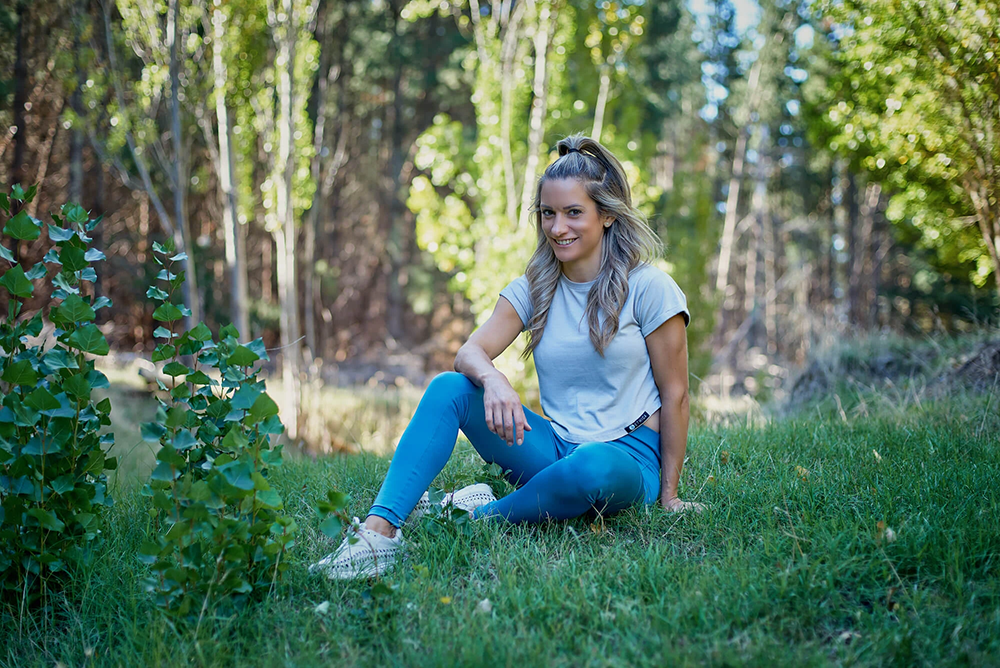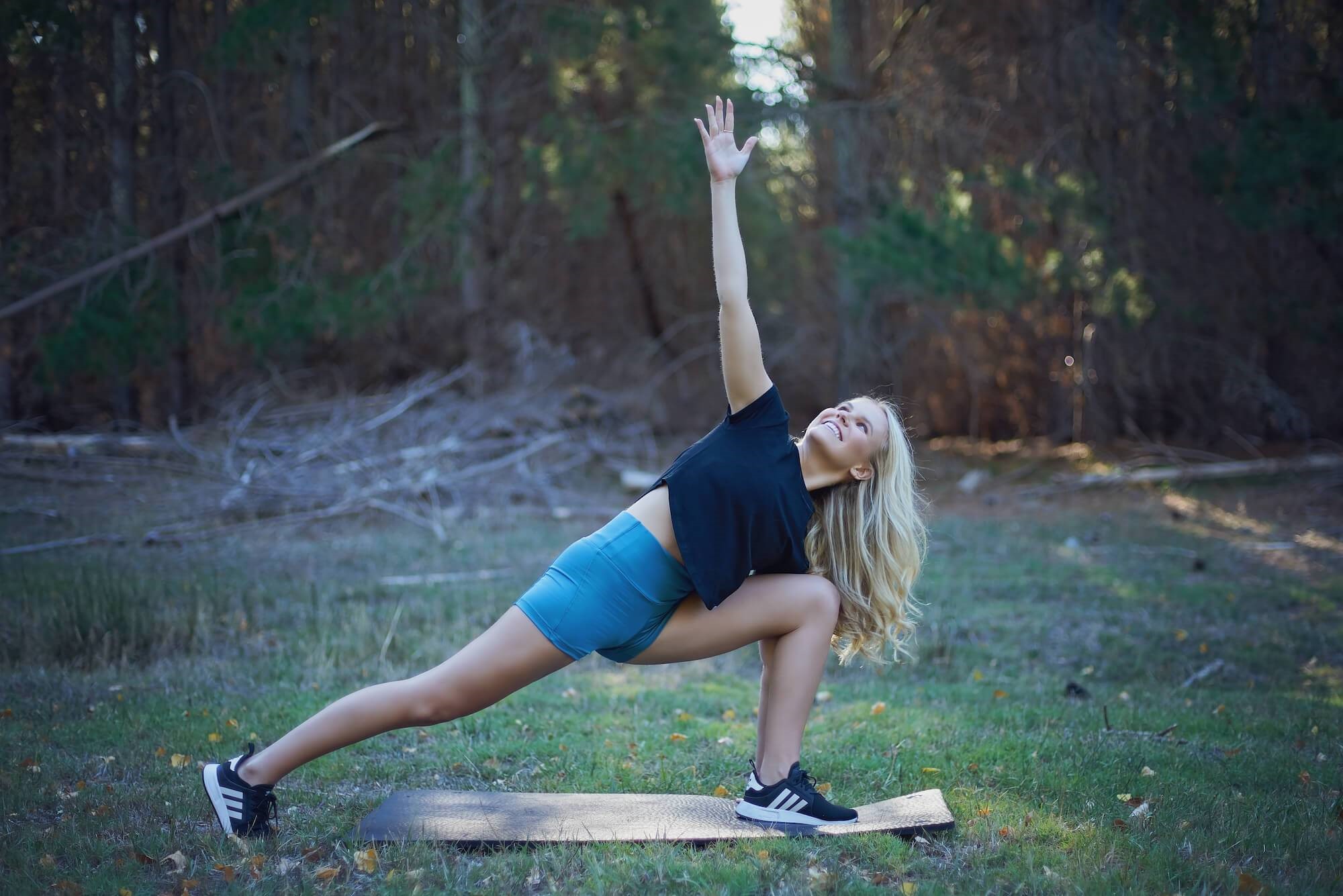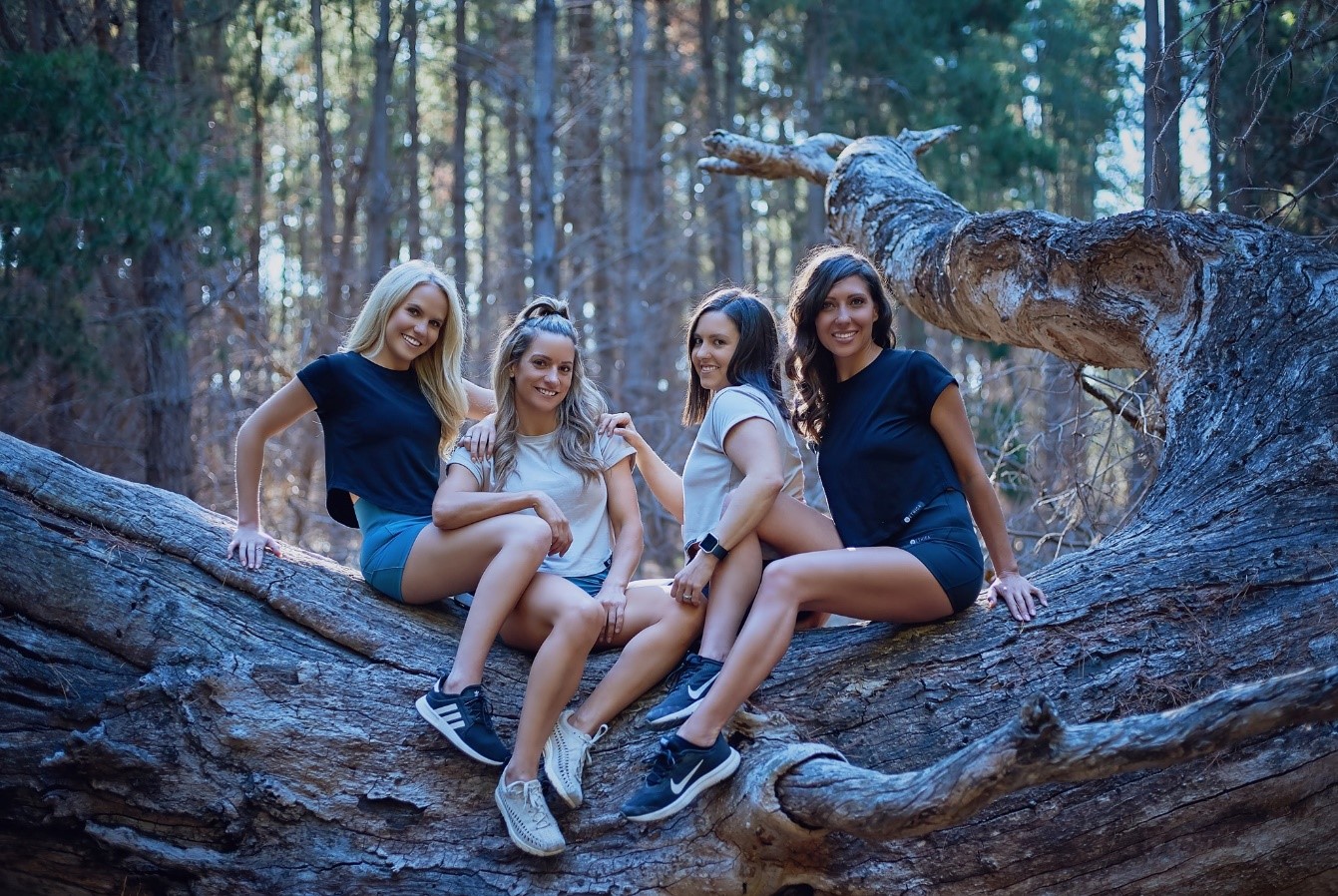01 July 2020

Thalia Kouts
Primary school teacher
Bachelor of Education (Junior Primary and Primary)
A chance hike in the lush Dandenong Ranges set primary school teacher, Thalia Kouts, on a path to creating her very own functional and fashionable, and most importantly sustainable, activewear with her new brand, Ethica.
Ethica crystallised her passion for the environment and commitment to living in harmony with our natural world, along with her fitness background and busy lifestyle, into practical and contemporary pieces that could be worn 'from studio to street'.
We had a talk to Thalia about launching Ethica and the values and thought behind the spandex.
1. Congrats on launching Ethica! Could you tell us a bit about the brand?
Thank you! Ethica supports the slow fashion industry. We’ve crafted eco-friendly, ethical activewear for people who care about fashion and our future generations. Our sustainable fabrics have been carefully chosen to have minimal impact on our natural resources.
Endless hours have been invested in researching environmentally conscious fabric suppliers who align themselves with our ethical values and sustainable vision. Our commitment to support local communities means that your garments are designed and made in Adelaide, Australia.
2. What do your days consist of now? You studied Education at UniSA, are you still teaching while building Ethica?
My days start between 5:00am and 5:30am where I work on Ethica in the morning and then start my usual teaching day. I also spend Saturdays working on Ethica (usually sitting with my laptop in a café) and try to have a rest on Sundays!
In my teaching, the environment and sustainability are always relevant and often aligns with what I’m trying to achieve with Ethica. Last term in my class, the children learnt about the 3 R’s – reducing, reusing and recycling. During this unit, they learnt how glass, plastic etc can be melted down and turned into other products. Just like our activewear!

3. Where did the idea of starting your own activewear brand come from?
I wasn’t even searching… Ethica found me.
It all started when I was visiting Melbourne, Australia in April 2017 and found myself on a scenic hiking route in the Dandenong Ranges (also known as the Kokoda Track Memorial Walk) which was simply breathtaking. I knew it would be a great way to embrace myself in nature, get the heart rate up and burn some calories!
On my way down, a gorgeous young woman was walking in front of me wearing natural coloured activewear immersed in this lush green, native forest. At that very moment, I had an epiphany! I decided I was going to build an ethical, sustainable brand that had minimal impact on our environmental footprint and was kind to Mother Nature. My mind went into overdrive and the journey begun!
I started to research and sustainable fabrics and once I discovered the benefits of both bamboo and PET fabric, nothing could stop me. Three years later, Ethica was born.
4. For many people, I’m sure the process from a plastic bottle to some slick activewear leggings would seem quite foreign. Could you take us through a little bit of the process?
When these empty, used plastic bottles are ground down and treated in a particular way, they can be carefully crafted into fine yarns. These yarns are then woven, (just like bamboo) turning plastic bottles into high quality, activewear ready for you to wear!
Our high quality, luxurious Recycled Polyester fabric is breathable and durable. It is also moisture wicking (it can be worn many times and then washed in cold water and air-dried) and will not pill or abrade easily, meaning it will last a very long time. Another added bonus for our environment!

5. What made you want to put the environment and sustainability front and centre at Ethica?
I want to raise awareness in others around the world so that the slow fashion industry continues to grow and evolve. The future of our children and our children’s children depend on our ability to minimising the environmental impact on our world.
I want to help make that difference by using good quality, sustainable fabric (and biodegradable fabric such as bamboo) that won’t end up in landfill. I want to slow down the clothing consumption rate, producing garments of better quality, that are bought less often (quality over quantity).
6. What does slow fashion and sustainability mean to you? How has your life changed since you began paying more attention to where your clothes come from?
Purchasing ‘quality’ over ‘quantity’ means we are slowing down the clothing consumption rate and are buying garments of better quality, less often. Slow fashion = guilt-free fashion and less impact on our environment.
I support local businesses and always look for made in Australia on the tag. I also shop at op shops now and ensure the fabric, care labels, fashion labels that have been used to make the garment is environmentally friendly.
7. The fast-fashion sector is a massive industry – what would you say to people that are unconsciously contributing to this damaging industry?
Research the number of textiles that end up in landfill each year and the impact this has on our environment. Copenhagen Fashion Summit reported that fashion is responsible for 92 million tons of solid waste dumped in landfills each year.
The clothing that ends up in landfills can sit there for over 200 years, and as it decomposes, it emits methane—a greenhouse gas more potent than carbon. Much of what we done gets, shipped, and re-sold overseas or gets dumped in landfills anyway.
Read Ethica’s 5 ways to support the Slow Fashion industry...
Visit Ethica’s website here for ethically produced activewear.




